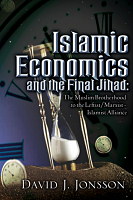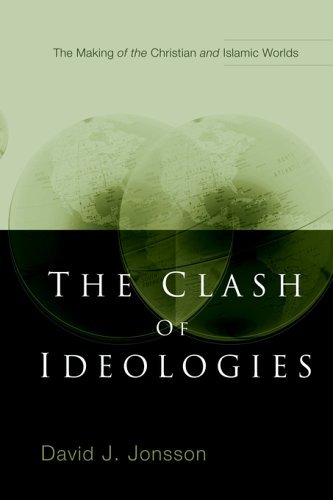


The Clash of Ideologies
By David J. Jonsson
President Bush gave a
seminal speech on October 5th, but few people took notice. He correctly
described the war against terror as a "clash of ideologies" and drew
comparisons to the fight against communism: America has embarked on a
make-or-break struggle against a grand and terribly ambitious terrorist
strategy. Thus, it is not enough to deny the terrorists the means to enact
their evil tactics, but their ideas and goals must also be challenged and
discredited.
So what are the strategy and
the goal of Islam? According to Bush, the terrorists seek to "establish a radical
Islamic empire that spans from Spain to Indonesia." I believe that it is
important to look at history to put the current day's events into perspective.
Many Christians today suffer
from historical amnesia. The time between the apostles and their own is one
giant blank; this is not what God intended. The consequence of our ignorance
concerning history allows us to be open to the appeals of any ideology
providing that it provides for immediate material gains.
Many
followers of the 'Interfaith' movement would group together the major religions
with the comment "the same message just a different messenger." This
leads to misconceptions about the goals of Islam and the teaching of Muhammad.
One of those misconceptions is that Islam is Apolitical.
Many leaders, talk-show
hosts and publications by Christians, Muslims and secularists have argued pro
and con as to whether Islam was peaceful or warlike and whether or not it is a
religion of law.
The
issue that needs to be addressed is: Is Islam political or apolitical? Islam is
political and this led Muhammad to form the first Nation state at Medina and
the writing of Median Charter in 622 (Constitution). This is the beginning of
Islamic Calendar. Islam is not so much a
religion of peace but as a political ideology and a religion of law.
Both Jesus and Muhammad
asked his followers to follow them and their teaching. Jesus said he would
establish a place in heaven for those who followed him and accept him as Lord
and Savior. In the Islamic tradition, Muhammad established the first and the
last "Kingdom of God on Earth."
Islam being political and a
religion of law have profound impact on the issues being faced today. To
represent it as an essentially apolitical creed of peace is to project onto it
a feature, which may, perhaps, be held to be (at least in theory) intrinsic to
Christianity, but does not necessarily belong to other faiths and does not
actually belong to Islam.
The “Clash of Ideologies”
did not arise after 9/11 as reported in the 9/11 Report of 2004, but has been going on since the seventh
century.
No event in the history of
Islam was of more importance than the battle of Badr on January 13th 624; the Qur'an calls it the “Day of Deliverance,” the
day before which the Muslims were weak, after which they were strong. Wealth,
fame, honor, power—all of them were secured, or at any rate brought within
reach, by the Day of Deliverance.
This was what it had grown
to, a menace to whatever came in its way. Muhammad could bide his time, but he
was not the man to depart from a project which had once taken hold of his mind,
as involved in his prophetic mission and authority. Muhammad might look with favor
upon much in Christianity, but unless Christians were prepared to accept his
dictation as to what the true religion was, conflict was inevitable, and there
could have been no real peace while he lived.
The greatest threat to Islam
is not Christianity, per se. Islam’s target is the entire Western world
and its legal system. Those who live in Western societies do not understand why
Islamic fundamentalists are so opposed to the West. Perhaps they have studied
the five pillars of Islam and viewed a colorful video of the Hajj. This type of
study would never give them an accurate picture of Islam’s global objectives.
Westerners ought to realize that Islamic ideology is in direct conflict with
the Western system of thought and ideals.
Bio: David J. Jonsson is the
author of Clash of Ideologies –The Making of the Christian and Islamic
Worlds, Xulon Press 2005. He received his undergraduate and graduate
degrees in physics. He worked for major corporations in the United States and
Japan and with multilateral agencies that brought him to more that fifteen
countries with significant or majority populations who are Muslim. These
exposures provided insight into the basic tenants of Islam as a political,
economic and religious system. He became proficient in Islamic law (Sharia)
through contract negotiation and personal encounter.
David J. Jonsson can be reached at djonsson2000@yahoo.co.uk

![]() BACK to "The Clash of Ideologies."
BACK to "The Clash of Ideologies."